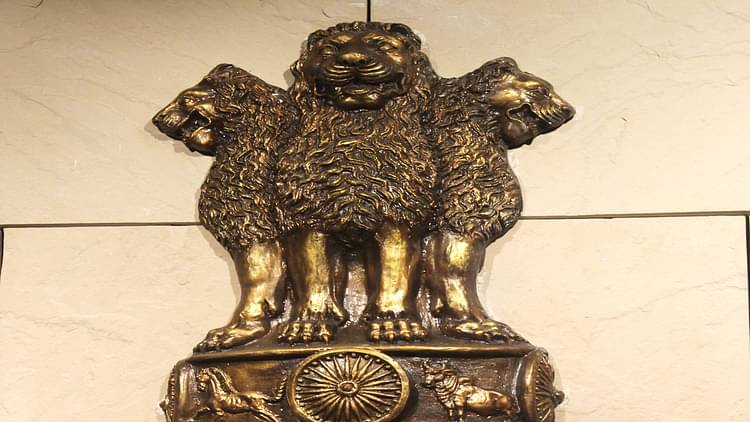While launching a book on Mahatma Gandhi, anathema to the RSS since its inception, its chief Bhagwat said: “If someone is Hindu, he has to be patriotic, that will be his or her basic character and nature. At times you may have to awaken his or her patriotism but he (Hindu) can never be anti-India.” The quoted section created a controversy as people were quick to recognise and call out the divisive agenda behind such utterings. RSS-BJP leaders are making such remarks which are disrespectful of the spirit of our Constitution and are reflective of the nefarious designs of the RSS-BJP.
For RSS-BJP combine religion has been and will remain an axis around which it tries to gather diverse groups of people by imposing a uniformity of Hindutva to complete their agenda of a communal authoritarian state. RSS has based its outlook on texts like Manusmriti, which envisioned a divided society with no space of dignity for Dalits and women but only perpetual suffering and degradation. Founded in 1925, the RSS was quick in recognising its role, preaching hatred against the minorities and a faithful allegiance to the British.
The environment of hate it had created around the partition of the country claimed the life of the Father of the Nation, Mahatma Gandhi, by Nathuram Godse, whom the BJP-RSS leaders are hailing as a great patriot. According to Bhagwat’s definition of patriotism, a Nathuram Godse will qualify as a patriot but not a Babasaheb Ambedkar, who chose Buddhism as his faith rejecting the inhuman and discriminatory hierarchical Hinduism.
The RSS idea of a nation is rooted in division and not in harmony. The politics of hate the Sangh Parivar preaches is dependent on othering, in the name of religion, caste, gender, nationality and so on. The second Sarsanghchalak and the most influential RSS ideologue MS Golwalkar wrote: “The non-Hindu peoples in Hindusthan (different from Hindustan) must either adopt the Hindu culture and language, must learn to respect and hold in reverence Hindu religion” or “may stay in the country, wholly subordinated to the Hindu nation, claiming nothing, deserving no privileges, far less preferential treatment—not even citizen’s rights.”
It is this aggressive homogenizing politics of Hindutva that sees a significant population of the country as foreigners or ‘others’ and has to offer only a second-class citizenship to them with no regard to any democratic norm of the world or to the approach to the citizenship that our Constitution makers adopted.
The remarks by the RSS chief also have another agenda, to derecognise and wash away the contribution made in the freedom movement or in the development of the republic by people from other religions, secularists and atheists. According to Mohan Bhagwat, a Maulana Azad or a Khan Abdul Gaffar Khan would not be patriot because of them being Muslims. A Dadabhai Naoroji or a Homi Jehangir Bhabha won’t qualify too. A revolutionary patriot like Bhagat Singh, because of him being an avowed atheist would have his patriotism questioned, ironically by those who never took part in the freedom movement because of their firm loyalty towards the colonizers.
This linking of a particular religion as a criterion for citizenship of the country has dangerous implications for the population and for the secular inheritances of our freedom movement. India opted to be a secular, multi-cultural, multi-lingual democracy instead of the theocratic Brahamanical Hindu-Rashtra as the RSS wanted, and now with a RSS pracharak leading the government, we need to be ever-vigilant about the attempts at tampering with our Constitution, secular democracy and the inclusive legacy of our freedom movement.
Our freedom movement was the confluence of many streams of thoughts and actions. The communists raised the issue of liberation not only from foreign rule but also from all forms of exploitation. Gandhi, after his return from South Africa, during the same period emerged as the leader of the anti-imperialist freedom movement. He raised the outstanding issue of Hindu-Muslim unity and relationship. Dr Ambedkar who returned from London in 1920 questioned the caste system and brought the issues of social justice and annihilation of caste to the focus.
Communists, Gandhi and Ambedkar had differences in their understanding on several critical issues. But they worked together to unite the people and to end colonial rule. Their patriotism and commitment towards building a better India was beyond questions. Their discourse was historic and source of inspiration today. These three played a great role and made immense contributions for making the new modern India.
After India gained independence in 1947 and the Constituent Assembly was convened to draft a Constitution for the soon to be inaugurated Republic of India, these three streams engaged with each other to consolidate the ideals of equality, liberty and fraternity in our Constitution.
Another group in pre-independent India, led by the progenitors of those who are in power today, was trying to sabotage every demand for national liberation and unity. That group was the Hindu right-wing namely the RSS under KB Hedgewar and MS Golwalkar and the Hindu Mahasabha under VD Sawarkar. Ever since their inception, they preached unconditional loyalty to the British colonizers and waged their struggles against those who were fighting for the independence of the country, those who were fighting against caste discrimination and against those who wanted to build a more equal society once India gains independence.
These groups were heavily inspired by the fascist party of Mussolini and the Nazi Party of Hitler, as their leaders praised these formations several times. When the whole country was getting united for a decisive struggle against colonialism, the RSS and Mahasabha were trying to create a divide between the different groups of the country in the name of religion. The hatred they spread around partition ultimately claimed the life of Gandhiji.
It is ironic that the RSS, which never took part in the freedom struggle, and its affiliate, the BJP, are distributing certificates of patriotism today. The RSS fight has been against the minorities, Dalits and rationalists of the country. Using the power at the Centre, the RSS and its affiliates are indulging in spreading hatred, misinformation, lies against Muslims, Dalits, rationalists and all people’s movements by dubbing them as traitors, anti-national, urban Naxal, etc.
India today is facing a big challenge and great threat from the rightwing fascist forces. RSS with its multiple ‘shadow armies’ is aggressively spearheading its sinister design to redefine our nation and nationhood. It is a huge irony that RSS being an organisation not answerable to any authority has assumed the right to represent the Hindu community as a whole and right to certify who is a nationalist and who is a patriot.
This is the biggest challenge to the Republic of India. BJP being the political wing of RSS has captured the power at the Centre. This has given them the possibility of perverting the Constitution. Dr. Ambedkar has pointed out that “it is perfectly possible to pervert the Constitution, without changing the form by merely changing the form of administration and to make it inconsistent and opposed to the spirit of Constitution”.
History demands that Communists, Ambedkarites and Gandhians must take up the challenge to save the Republic and the Constitution.
































